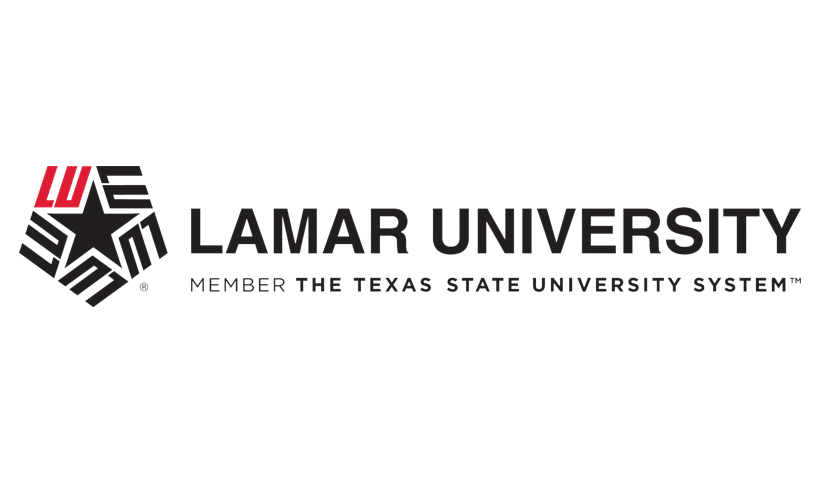
Many prospective students ask a common question before starting their training: “Do I need a license to work as a counselor?” The answer isn’t a simple yes or no—it depends on the type of role you want, the title you use, and the laws in your state.
Licensure is a legal safeguard designed to ensure counselors meet specific education, training, and ethical standards before offering independent counseling services. However, not every job that involves helping people in a counseling-related capacity requires a counseling license.
This article will explain when licensure is legally required, outline counseling-related roles that do not require a license, and discuss the risks, limitations, and alternative credentials you should consider. By understanding these distinctions, you can make informed decisions about your education, career path, and long-term goals in the counseling field.
 Walden University : MS in Clinical Mental Health Counseling (CACREP Accredited, six specializations to choose from)
Walden University : MS in Clinical Mental Health Counseling (CACREP Accredited, six specializations to choose from) Walden University : MS in School Counseling (CACREP Accredited)
Walden University : MS in School Counseling (CACREP Accredited) Northwestern University : Online MA in Counseling (CACREP Accredited)
Northwestern University : Online MA in Counseling (CACREP Accredited) Northwestern University : Master of Science in Marriage and Family Therapy (Complete your COAMFTE-accredited MFT online program in as few as 21 months. No GRE required.)
Northwestern University : Master of Science in Marriage and Family Therapy (Complete your COAMFTE-accredited MFT online program in as few as 21 months. No GRE required.) Grand Canyon University : Master's Degree in Counseling (CACREP Accredited)
Grand Canyon University : Master's Degree in Counseling (CACREP Accredited) Liberty University : MA: Clinical Mental Health Counseling (Online with required intensives)
Liberty University : MA: Clinical Mental Health Counseling (Online with required intensives) National University : Master of Science in Clinical Mental Health Counseling (Accredited. No GRE. Scholarships Available)
National University : Master of Science in Clinical Mental Health Counseling (Accredited. No GRE. Scholarships Available) University of Denver : Master of Arts in School Counseling (CACREP Accredited)
University of Denver : Master of Arts in School Counseling (CACREP Accredited) Mid-America Christian University (MACU) : Master of Science (MS) in Counseling (100% Online, No GRE Required)
Mid-America Christian University (MACU) : Master of Science (MS) in Counseling (100% Online, No GRE Required)What Does “Licensure” Mean in Counseling?
In counseling, licensure refers to a state-regulated credential that legally authorizes an individual to provide counseling services—often including diagnosis and therapy—independently. Holding a license demonstrates that the counselor has met established standards for education, supervised experience, and ethical practice. Licensure exists to protect clients and ensure professional quality of care.
Common counseling licenses include:
- LPC (Licensed Professional Counselor)
- LMHC (Licensed Mental Health Counselor)
- LPCC (Licensed Professional Clinical Counselor)
- LMFT (Licensed Marriage and Family Therapist)
While the exact title and requirements vary by state, all counseling licenses typically require:
- A master’s degree in counseling or a related field
- Completion of supervised practicum and post-graduate clinical hours
- Passing a state or national licensing exam such as the National Counselor Examination (NCE) or National Clinical Mental Health Counseling Examination (NCMHCE)
If you’re exploring how to become a counselor, understanding licensure is essential. It determines whether you can practice independently, the scope of services you can provide, and how your education aligns with state laws.
Roles That Require a Counseling License
Many counseling positions—especially those involving clinical mental health care—require a state-issued license to practice. These roles allow counselors to diagnose mental health conditions, provide psychotherapy, and bill insurance for their services.
Examples of licensed roles include:
- Licensed Professional Counselor (LPC)
- Licensed Mental Health Counselor (LMHC)
- Licensed Professional Clinical Counselor (LPCC)
- Licensed Marriage and Family Therapist (LMFT)
- Licensed Clinical Social Worker (LCSW)
While job titles and license types vary by state, the core requirements for these roles are often similar:
- Earn a master’s degree in counseling or a closely related field
- Complete supervised practicum and internship hours during your graduate program
- Fulfill post-graduate supervised experience requirements, which may range from 2,000 to 3,000 hours
- Pass a state or national licensing exam
- Meet ongoing continuing education requirements to maintain licensure
Licensure matters because it grants legal authority to provide clinical counseling services independently. Without it, you cannot use certain protected titles, offer therapy as a standalone provider, or bill third-party payers such as insurance companies. For students aiming to work in direct mental health care, obtaining a license is a necessary step to fully participate in the profession.
Consider a Featured Online Counseling Program
| School and Program Information | Online Program? Entry Requirements | Course Information | |
|---|---|---|---|
|
Walden University
MS in Clinical Mental Health Counseling
 CACREP Accredited CACREP Accredited |
✔ Online
GRE scores not required
|
Walden’s online CACREP-accredited MS in Clinical Mental Health Counseling program can help you become the competent, compassionate counselor you know you can be.
|
Learn More |
|
Walden University
MS in School Counseling
 CACREP Accredited CACREP Accredited |
✔ Online
GRE scores not required
|
CACREP-accredited program provides a solid foundation in school counseling theories, approaches, and best practices while enabling you to gain hands-on experience.
|
Learn More |
|
Northwestern University
Online MA in Counseling
 CACREP Accredited CACREP Accredited |
✔ Online
GRE Not Required
Bachelor's Required |
CACREP-accredited online Master of Arts in Counseling from The Family Institute at Northwestern University. Prepare to pursue licensure in as few as 18 months.
|
Learn More |
|
Northwestern University
Master of Science in Marriage and Family Therapy
COAMFTE Accredited
|
✔ Online
GRE Not Required
Bachelor's Required |
Complete your COAMFTE-accredited MFT online program in as few as 21 months. No GRE required.
|
Learn More |
|
Grand Canyon University
Master's Degree in Counseling
 CACREP Accredited CACREP Accredited |
✔ Online
|
CACREP-accredited MS in Clinical Mental Health Counseling. Emphases: Marriage & Family Therapy, Christian Counseling, Childhood & Adolescence Disorders, & Trauma.
|
Learn More |
|
Liberty University
MA: Clinical Mental Health Counseling
 CACREP Accredited CACREP Accredited |
✔ Online
Online with required intensives
|
Our CACREP-accredited online master’s in counseling helps you become a skilled mental health counselor ready to empower others for positive change.
|
Learn More |
|
National University
Master of Science in Clinical Mental Health Counseling
WSCUC Accredited
|
✔ Online
GRE Scores Not Required
|
Focused on training highly skilled counselors to provide impactful and culturally sensitive mental health services in their communities.
|
Learn More |
|
University of Denver
Master of Arts in School Counseling
 CACREP Accredited CACREP Accredited |
✔ Online
No GRE Required; Minimum GPA 2.5 Required
|
With no GRE required, earn your CACREP-accredited Master's in School Counseling online in as few as 24 months from the University of Denver.
|
Learn More |
|
Mid-America Christian University (MACU)
Master of Science (MS) in Counseling
Higher Learning Commission (HLC)
|
✔ Online
100% Online
|
Oklahoma’s largest MS in Counseling program, with emphases in addiction and substance abuse, applied behavioral science, clinical mental health counseling, and more!
|
Learn More |
*Sponsored Counseling Programs
For detailed degree information, view the guides to:
Online CACREP Accredited programs | Online MPCAC Accredited programs
 Walden University - MS in Clinical Mental Health Counseling (CACREP Accredited)
Walden University - MS in Clinical Mental Health Counseling (CACREP Accredited)
 Walden University - MS in School Counseling (CACREP Accredited)
Walden University - MS in School Counseling (CACREP Accredited)
 Northwestern University - Online MA in Counseling (CACREP Accredited)
Northwestern University - Online MA in Counseling (CACREP Accredited)
 Northwestern University - Master of Science in Marriage and Family Therapy (COAMFTE Accredited)
Northwestern University - Master of Science in Marriage and Family Therapy (COAMFTE Accredited)
 Grand Canyon University - Master's Degree in Counseling (CACREP Accredited)
Grand Canyon University - Master's Degree in Counseling (CACREP Accredited)
 Liberty University - MA: Clinical Mental Health Counseling (CACREP Accredited)
Liberty University - MA: Clinical Mental Health Counseling (CACREP Accredited)
 National University - Master of Science in Clinical Mental Health Counseling (WSCUC Accredited)
National University - Master of Science in Clinical Mental Health Counseling (WSCUC Accredited)
 University of Denver - Master of Arts in School Counseling (CACREP Accredited)
University of Denver - Master of Arts in School Counseling (CACREP Accredited)
 Mid-America Christian University (MACU) - Master of Science (MS) in Counseling (Higher Learning Commission (HLC) Accredited)
Mid-America Christian University (MACU) - Master of Science (MS) in Counseling (Higher Learning Commission (HLC) Accredited)
Can You Work in Counseling Without a License?
Yes—but with important limitations. While many counseling roles require a license, there are positions in related fields where you can work without one. These roles typically focus on support, guidance, or skill-building rather than providing psychotherapy or diagnosing mental health conditions.
Common examples include:
- Case Manager – Coordinates services and resources for clients in social services, healthcare, or nonprofit settings.
- Career Counselor – Provides career planning and job search guidance, sometimes within schools, workforce development programs, or private organizations. (Note: some positions may require specific certifications.)
- Academic Advisor – Guides students on course selection, degree planning, and academic success strategies in K–12 or higher education.
- Substance Abuse Counselor – In certain states, may work with clients under a certification program rather than a counseling license.
- Behavioral Health Technician – Supports licensed clinicians in implementing treatment plans, often in hospitals or residential programs.
- Peer Support Specialist – Uses lived experience with mental health or substance use recovery to provide support and mentorship.
It’s important to note that titles such as “therapist” or “psychotherapist” are legally protected in many states and can only be used by individuals with the appropriate license. Unlicensed professionals in counseling-adjacent roles must work within a defined scope of practice and, in some cases, under the supervision of a licensed counselor.
Alternative Credentials and Certifications
For some counseling-related roles, certification—not licensure—is the primary credential. These certifications can help you qualify for specific positions, expand your skill set, or demonstrate professional competence without granting the full legal authority of a counseling license.
Common examples include:
- Certified Alcohol and Drug Counselor (CADC) – Recognized in many states for professionals working in substance use treatment. Requirements vary but often include relevant coursework, supervised experience, and passing a certification exam.
- National Certified Counselor (NCC) – Offered by the National Board for Certified Counselors (NBCC). Requires a master’s degree in counseling, completion of coursework and supervised experience, and passing the National Counselor Examination. While it is a respected credential, it is not a substitute for state licensure.
- Life Coach Certifications – Available through various private organizations. These are generally unregulated, meaning no standardized education or training requirements exist. While they can support work in personal development or career coaching, they cannot be used as a replacement for clinical counseling credentials.
The key difference between certification and licensure is legal standing. Certification may indicate specialized training or expertise, but it does not grant the legal authority to diagnose, provide psychotherapy, or operate an independent counseling practice in a clinical capacity.
Risks and Limitations of Working Without a License
While it’s possible to work in certain counseling-related roles without licensure, doing so comes with important constraints that can affect your career options and professional standing.
Limited Job Opportunities and Lower Earning Potential
Licensed counselors often have access to a broader range of positions, including private practice, clinical leadership, and specialized therapy roles. Without a license, you may be limited to support or non-clinical positions, which generally offer lower salaries.
Restricted Scope of Practice
Unlicensed professionals cannot legally diagnose mental health conditions, provide psychotherapy independently, or bill insurance for services. Your work will typically focus on guidance, advocacy, or program coordination rather than direct clinical care.
Legal Consequences
Practicing counseling without the appropriate license—especially if you use protected titles like “therapist” or “psychotherapist”—can result in legal penalties, including fines or cease-and-desist orders from your state licensing board.
Professional Credibility and Client Trust
Licensure signals that a counselor has met rigorous standards in education, supervised experience, and ethics. Without it, you may face challenges in building credibility with employers, colleagues, and clients, even in non-clinical roles.
For those who want the full scope of practice, legal protection, and career flexibility, pursuing licensure is the safest and most sustainable path.
If You Want to Become a Licensed Counselor
For those who plan to work in clinical mental health counseling—or in any role requiring independent practice—a state license is essential. The path to licensure follows a structured progression designed to ensure counselors are prepared to work safely, ethically, and effectively.
Typical steps include:
- Earn a master’s degree in counseling or a closely related field, ideally from a CACREP-accredited program to streamline licensure eligibility in most states.
- Complete supervised practicum and internship experiences as part of your graduate training, meeting the required number of direct client hours.
- Fulfill post-graduate supervised experience—often 2,000 to 3,000 hours—under the mentorship of a licensed professional.
- Pass a state-recognized licensing exam, such as the National Counselor Examination (NCE) or National Clinical Mental Health Counseling Examination (NCMHCE).
- Meet continuing education requirements to maintain your license once it’s issued.
Benefits of licensure include:
- The legal authority to diagnose, provide therapy, and bill insurance independently
- Increased career flexibility across a range of settings, from private practice to hospitals and schools
- Greater earning potential and access to specialized roles
- Enhanced professional credibility and trust with clients and employers
If licensure aligns with your career goals, it’s best to plan your education and training with those requirements in mind from the very beginning.
FAQ
Can I call myself a counselor without a license?
In many states, the title “counselor” is not legally protected, but specific titles like “Licensed Professional Counselor,” “therapist,” or “psychotherapist” are. Even if the term is not restricted, you must be careful not to imply you are providing clinical mental health services without proper licensure.
Do I need a license to be a school counselor?
Yes, public school counselors generally need state-issued certification or licensure specific to school counseling. Requirements vary by state but usually include a master’s degree in school counseling, supervised fieldwork, and passing a relevant exam.
Is coaching the same as counseling?
No. Coaching focuses on goal-setting, performance improvement, and personal development, while counseling addresses mental health concerns, emotional challenges, and behavioral issues. Coaching is generally unregulated, but counseling is legally regulated in most states.
Can I work under a licensed counselor’s supervision without my own license?
Yes. Many unlicensed professionals work in counseling-related roles under the supervision of a licensed counselor. This can be a valuable way to gain experience while completing the education and training required for licensure.
Next Steps for Prospective Students
Whether you can work as a counselor without a license depends on the role, your state’s laws, and your long-term career goals. If you aim to provide clinical mental health services, licensure is essential for legal practice, full scope of responsibilities, and career mobility. If you prefer non-clinical or support-focused work, there are legitimate, fulfilling roles available without licensure—though with more limited authority and earning potential.
Before choosing your path, research your state’s requirements, clarify your desired job title, and decide whether pursuing a license aligns with your ambitions. Professional associations such as the American Counseling Association (ACA) and the National Board for Certified Counselors (NBCC) can provide guidance, resources, and state-by-state licensure information to help you plan your next steps with confidence.







